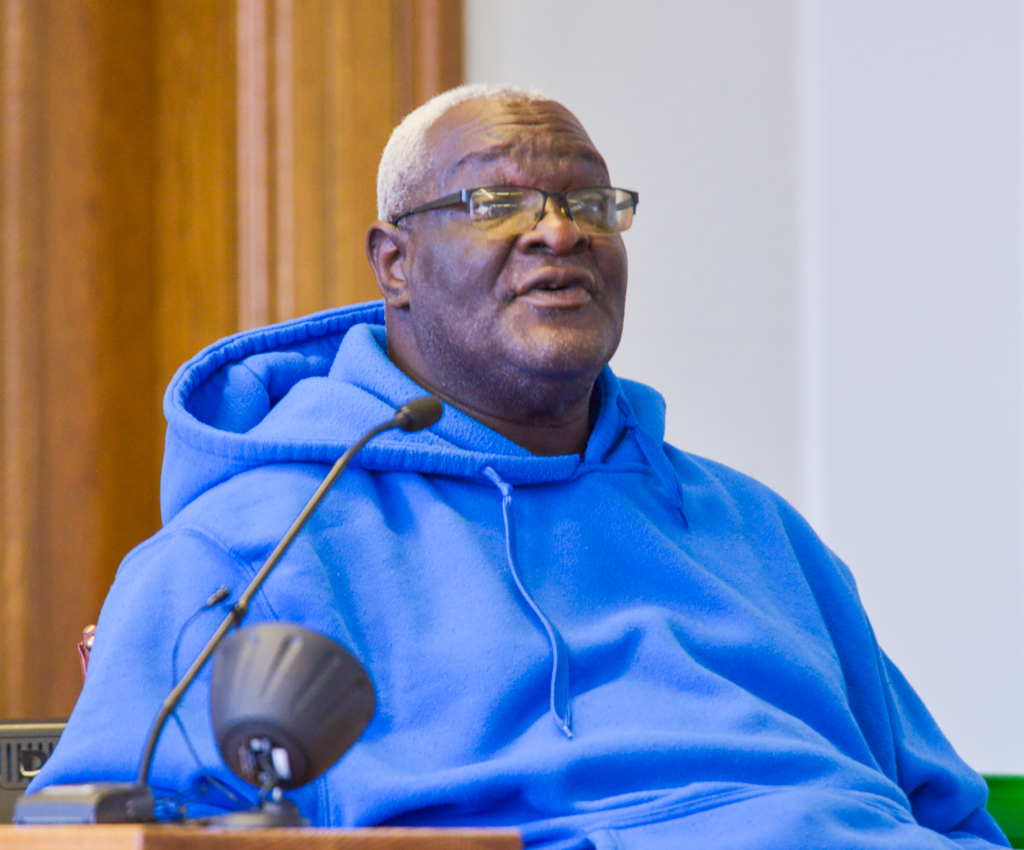Denver District Court Judge Brian R. Whitney heard evidence Tuesday and ultimately ruled against a challenge to Rep. Doug Lamborn’s place on the Republican primary ballot. Five citizens living in the 5th Congressional District, represented by lead attorney Michael Francisco, claimed that seven paid petition circulators gathering signatures to place Lamborn on the primary ballot falsely claimed residency in Colorado in registering to vote.
In a nuanced ruling Judge Whitney held that only 58 signatures collected by one petition circulator, Jeffery Carter, are invalid. He also ruled that the Secretary of State did nothing wrong in validating the petitions. The ruling leaves Lamborn with 1,211 valid signatures, enough to qualify for the ballot.
“After a review of the order as orally given today and consulting with the Petitioners, we will appeal this ruling to the Colorado Supreme Court to advocate for the integrity of the election process in Colorado,” said Francisco in a press release.

Over objections from Assistant Solicitor General Matthew Grove, representing the Secretary of State and Ryan Call, attorney for the Lamborn campaign, Judge Whitney allowed Francisco to call petition circulators hired by Lamborn’s campaign to the stand to testify.
Ryan Tipple, in California, testified first via telephone. Tipple said that he is currently working flipping houses in that state but has roots and relatives in Colorado and intends to move back when and if the economics allow him to do so.
A Complete Colorado investigation found Tipple is a resident of California and registered to vote in both California and Colorado. Tipple confirmed Complete’s findings when he testified to owning houses and vehicles registered in California, where his wife and children reside with him.
Tipple also stressed his history of visits to Colorado and that he has relatives living here and hopes to return to Colorado permanently when and if job opportunities allow him to do so. Tipple collected 269 signatures.
Petition collectors Joshua Whaley, Nickole Ort, Terrence Despres, Joshua Stinger and Darrell Herron all testified that they established residency at a rental house in Thornton and registered to vote before collecting signatures.
Next, Francisco questioned Jeffrey Carter about his past activities as a petition circulator. Carter said that he has worked as a circulator all over the country for many years, and that he is an electrician with 23 years of experience. Carter testified that he plans to return to St. Louis, Missouri, to a house he’s lived in for eight years, to accept a job offer as an electrician he received hours before the the hearing.
Carter admitted that he still holds a lease on the house and that his personal goods remain in Missouri. Judge Whitney later ruled Carter’s testimony proves he didn’t intend to make Colorado his home.
Francisco wrapped up the citizen’s case just before lunch. Following a lunch recess, Call and Grove called Deputy Secretary of State Susanne Staiert, who was questioned about election processes and procedures.
Two core arguments emerged during the hearing.
Francisco argued that technical compliance with state law regarding residency for petition circulators is mandatory. If a circulator does not comply with the statutory requirements for establishing residency, which is a predicate to a valid voter registration, the signatures gathered must be discarded. Francisco attacked the eligibility of the seven circulators to register to vote by presenting evidence that they moved to Colorado but had no intention of becoming legitimate residents and voters.
Call and Grove argued that state statutes regarding verification of status as a registered voter only require the Secretary of State to match the signature and address found in the state voter registration database in order to validate both the status of the petition circulator and the voters who sign the petitions.
The validation of voter residency is evidenced by a form sent out by the Secretary of State to the address listed on the voter registration record. If this verification card is not returned by the post office as being undeliverable, Staiert says that the record is marked as being verified. If the card “bounces back” then the record is marked as unverified. If the voter database record is verified, said Staiert, state statutes says no further inquiry into its validity is required.
Grove also argued that “substantial compliance” language in the statutes favors overlooking minor technical errors because the right to vote, and the right to participate in the political process by collecting signatures are fundamental rights. Grove said that the presumption should favor the right of voters to select representatives at an election and that technical deficiencies that keep candidates off the ballot potentially disenfranchise not only petition signers but voters in general.
After closing arguments Judge Whitney recessed briefly to examine exhibits and returned with his ruling.
Ruling the Secretary of State followed proper procedure in validating the petitions, Judge Whitney said a requirement for further detailed inquiry into a voter’s history or personal life to validate a registration would be so burdensome to the Secretary of State as to be “untenable.”
He ruled that because Ryan Tipple has relatives in Colorado and spends a considerable amount of time in Colorado as well as testifying to his desire to return permanently to Colorado someday, his status as a Colorado resident and registered voter is valid as are the 269 signatures he collected.
Whitney then ruled that Jeffery Carter’s 58 signatures must be stricken from the tally because Carter’s testimony proved he didn’t intend to remain a Colorado resident.
In the end, Congressman Lamborn retains more than the 1000 signatures required to place him on the ballot.
Francisco says he plans to appeal to the Colorado Supreme Court.


